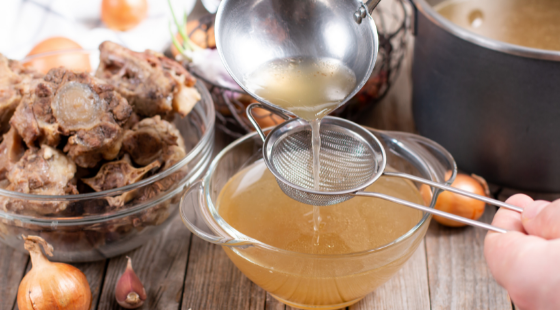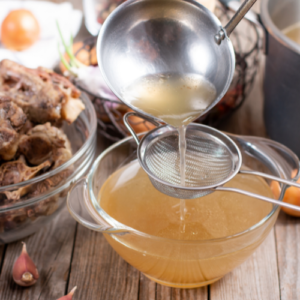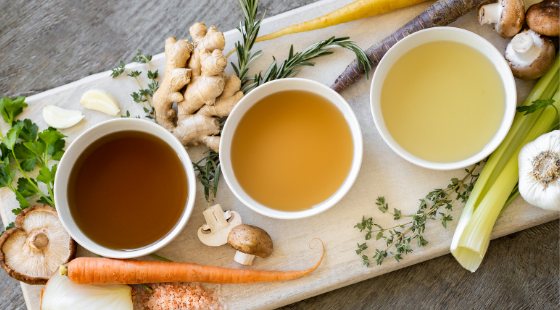It may be hard to comprehend that our gut has anything to do with our emotions. But, there is growing research showing that our gut has an instrumental role in managing our mood and supporting our mental health. Now, more than ever, the prevalence of mental health issues and mood disorders have been soaring to all-time highs. This has a huge impact on our ability to function at work, manage a household, puts strain on relationships, and challenges our ability to enjoy what life has to offer.
For many, the first line treatment for mood disorders are a prescription for antidepressant medications. Unfortunately, although some people find antidepressant medications helpful, a growing body of evidence is showing they are often ineffective or provide only minor relief and come with a whole host of side effects. With mood disorders and mental health challenges, as with most aspects of health care, we believe it is really important to address the underlying root cause.
There are a number of contributory factors concerning depression. Among the common factors are trauma, life events and genetics. There are also biophysiological factors that can also heavily influence our mood, and these include:
Why does our gut impact our mood?
Believe it or not, there isn’t one reason, but rather multiple factors that influence our brain chemistry and mood via our gut.
Our gut – and in particular our gut microbiome – can play a role in a wide range of neurological conditions such as Autism Spectrum Disorder, chronic pain, stress, Alzheimer’s disease, Parkinson’s disease, and of course, depression and anxiety. (15)
There are various nerves that connect from our brain to our gut and these are in constant communication with each other. Plus, we have neurotransmitters, including serotonin, which play a crucial role in regulating mood – and 80% of serotonin is produced by the gut!
How does our gut impact our mood?
-
Gut-brain connection
Our gut has also been coined “second brain” and that it because it has its own complex nervous system called the enteric nervous system (ENS). Our gut contains an estimated 500 million neurons, stretching 9 meters long. No wonder it is referred to as the second brain! There are hundreds of millions of neurons connecting the brain to the enteric nervous system.
The gut-brain-axis connects the ENS and central nervous system (CNS), allowing your gut to communicate with the brain, and vice versa. So, when our gut is not working properly then our brain can often become negatively impacted as well via a feedback loop in the nervous system.
-
Good versus bad bacteria in the gut
We all have good and bad bacteria in our gut. What is important is that we keep the bad bacteria in our gut to a minimum and make sure we have plenty of good bacteria that include a variety of different healthy species. In fact, bacteria outnumber human cells in the body 10 to one and they have an instrumental role that these bacteria have in our body.
Research suggests that healthy gut flora may help reduce depression symptoms and that changing the gut microbiome could potentially be a treatment option. (4) One of the reasons for this is that research shows the gut microbiome can influence levels of serotonin. Serotonin is a neurotransmitter — a chemical messenger — that helps regulate mood and promotes feelings of happiness.
Different types of species can have a role to play too. Researchers found that those with depression showed differences in specific groups of “bad” gut bacteria and that people with higher concentrations of certain other “good” gut bacteria generally reported better mental well-being. (1). People with depression were also seen to more likely have depleted levels of the good bacteria (specifically Bifidobacterium, Lactobacillus Coprococcus and Dialister) compared with people who reported a higher quality of life and mood.(2,3)
The gut microbiome is so powerful in influencing our body chemistry that it can even affect our response to medications in both the effectiveness and/or side effects of medications used to treat these disorders. So, even if you are taking an antidepressant your response to that medication, either positive or negative, could be as a result of your bacteria in your gut. (5,6)
-
Digestive Disorders
Another reason why the gut impacts mood can be seen through individuals that have issues with their digestion. Research has found that people with irritable bowel syndrome (IBS) had higher levels of depression than people without IBS. (7) One reason goes back to the microbiome imbalances. One study showed that people with depression also had bacteria associated with Crohn’s disease. (2,3)
Depression, anxiety, and panic attacks are particularly common among patients with Small Intestinal Bacterial Overgrowth (SIBO) and IBS. Changes in neurotransmitters play a role in the development (or potentiation) of mood disorders seen in patients with SIBO and other GI issues.
How to Improve Gut Health to Benefit Mood
-
Follow a Mediterranean diet
A 2018 systematic review concluded that people who followed the Mediterranean diet had a 33% lower chance of being depressed than people who did not. (8) This is due to the limited intake of processed foods and sugars and the high intake of fish, good fats, nuts/seeds, whole grains and a variety of fruits and vegetables which support gut health and help feed good bacteria.
-
Eat lots of fruits and vegetables
Fresh fruits and vegetables contain high antioxidants that can help manage inflammation associated with depression and other mood disorders (9). A recent study found eating four extra portions of fruit and vegetables could boost people’s mental health. The more fruit and vegetable people ate, the less likely they were to be diagnosed with a mental illness. (10)
Dietary fiber, like that contained in fruits and vegetables, supports the growth of healthy intestinal bacteria. One study found the variety of bacteria in the gut microbiome was based on the variety of fruits and vegetables in a person’s diet and that the microbial composition of the gut can be rapidly altered with dietary changes. (11)
-
Make sure you include berries in your diet each day
Berries are high in anthocyanins and fiber to support healthy gut flora and digestion. They are also a great option if you have sugar cravings and need a healthy alternative. One study associated a diet rich in anthocyanins (such as berries) with a 39% lower risk of depression symptoms (12).
Research also shows that blueberries, strawberries, blackberries, and raspberries may block the chemicals that cause depression and anxiety (13).
-
Avoid sugar and processed foods
Sugar and refined grains feed the bad bacteria in our guts which can negatively impact our mood. Research shows that people who ate more unhealthy food were more likely to report psychological distress compared with people who ate a healthy diet. In fact, research showed that eating fried foods or foods contain too much sugar and processed grains is linked to depression. (14)
-
Eat fermented foods
Fermented foods includes kimchi, kefir, sauerkraut, pickles, kombucha. Fermented foods are filled with good bacteria to help support healthy gut flora. Many beneficial probiotic strains are contained in traditionally fermented foods. Research has shown that these healthy bacteria not only help to produce neurochemicals, but also help the body respond to them as well.
Summary
If you are someone that struggles with depression or other mood disorders (and potentially have digestive issues) there could be a number factors that would be beneficial to address – leaky gut, food intolerances/allergies, gut microbiome imbalances such as SIBO, and nutrient deficiencies due to poor absorption.
You may wish to consider seeking support from a health professional. Getting your gut health assessed is best done by a Naturopath doctor who can complete the appropriate testing. Blood lab work, stool analysis, and breath tests for SIBO are just some of the functional tests that can be completed to help get to the root cause of a potential physiological issue that is influencing your mood.
References
- https://www.webmd.com/depression/understanding-depression-basics#:~:text=Researchers%20found%20that%20among%20over%202%2C100%20adults%2C%20those,other%20gut%20bugs%20generally%20reported%20better%20mental%20well-being.
- https://www.nature.com/articles/s41564-018-0337-x
- https://pubmed.ncbi.nlm.nih.gov/27288567/
- https://www.ncbi.nlm.nih.gov/pmc/articles/PMC5641835/
- https://pubmed.ncbi.nlm.nih.gov/27591027/
- https://gut.bmj.com/content/69/8/1510
- https://www.jnmjournal.org/journal/view.html?doi=10.5056/jnm16220
- https://www.nature.com/articles/s41380-018-0237-8
- Redzo Mujcic et al. Does eating fruit and vegetables also reduce the longitudinal risk of depression and anxiety? A commentary on ‘Lettuce be happy,’ Social Science & Medicine (2019). DOI: 10.1016/j.socscimed.2019.01.004
- https://pubmed.ncbi.nlm.nih.gov/29662448/
- Journal information: Social Science & Medicine
- https://pubmed.ncbi.nlm.nih.gov/29695122/
- Keservani RK, Sharma AK, Kesharwani RK. Medicinal Effect of Nutraceutical Fruits for the Cognition and Brain Health. Scientifica (Cairo). 2016;2016:3109254. doi:10.1155/2016/3109254
- https://works.bepress.com/jim-banta/41/
- https://pubmed.ncbi.nlm.nih.gov/24583088/













